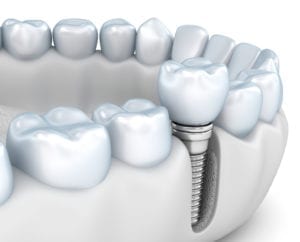Are you looking to restore the beauty and functionality of your smile?
If you are missing a tooth, your whole smile is thrown off. This can negatively affect the ability of your bite pattern, speaking pattern, and overall self-esteem.
At Larsen Family Dental, we strive to offer you the most natural-looking, long-lasting, and high-functioning solution to replacing a missing tooth. That’s why we offer state-of-the-art dental implants. Restorative dentistry patients are often most satisfied with dental implants. This is because 95% of dental implants are successful after long-term use!
Additionally, dental implants are the only restoration option that allows you to avoid extensive bone loss in the jaw. Because implants mimic the function of natural tooth roots, they not only provide unparalleled support for dental restorations but also prevent further jawbone degeneration by stimulating the bone tissue in the same way that your natural tooth roots can.

Dental Implants in Bountiful, UT
The dental implant process involves a surgical procedure to insert the titanium post into your jaw bone and cover it with soft tissue to encourage healing. It will take a few months to fully heal and fuse to your jawbone. When you have healed completely, you will return for a second procedure to attach abutments to the implants.
During the final visit, Dr. Larsen will secure your dental crown on top of the abutment for permanent smile restoration. A dental implant-supported restoration is considered the number one solution for missing teeth. Here are some commonly asked questions regarding our dental implants:
Am I a good candidate for dental implants?
Dr. Larsen will need to provide a thorough consultation of your dental and overall health to determine if you are a good candidate for dental implants. The ideal dental implant candidate is in good health, has strong jawbone tissue, and does not have a current smoking habit.
However, the many advances in implant dentistry now offer procedures for augmenting compromised bone or periodontal issues to make it possible for the majority of patients desiring dental implants to receive them. Dr. Larsen will coordinate any necessary care with a local specialist if there are concerns to be addressed before placing dental implants.
Can dental implants be used with bridges and dentures?
Yes. Dental implants make great supports for bridges and dentures to prevent slippage. All steps in the procedure will remain the same almost entirely. During the final visit, Dr. Larsen will connect your permanent crown, bridge, or denture to the abutment, depending on which one you choose.
Are dental implants expensive?
There is a larger upfront cost to dental implants than other restorative solutions because of the surgical procedure required. If you need a more affordable treatment option, traditional bridges or dentures may be a better option for you.
However, Dr. Larsen typically recommends dental implants because of the greater benefits they offer to your jawbone tissue. With dental implants, you are also less likely to need adjustments to your restoration over time, allowing you to save money in the long run.
Does getting implants hurt?
Because placing implant posts is a surgical procedure, you’ll experience some pain and discomfort after it’s performed. The area is thoroughly numbed before surgery and you’re also given sedation if needed. For 3-5 days afterward, you may experience some soreness.
The dentist may prescribe you pain medication, or recommend over-the-counter painkillers to keep discomfort as minimal as possible. If you have severe pain that lasts for long periods, call our office immediately.
Can dental implants fail?
Failure is always a possibility. However, implants have a 95-97% success rate, so it’s rare. The most common cause of implant failure is completely preventable — infection. It’s extremely important that you follow aftercare instructions and make sure you’re taking care of your implant properly.
Are dental implants worth it?
Implants can be a turnoff for patients because they are a pricier dental solution. But this is because of the unmatched stability and quality of life you get with dental implants. They’re the only solution that gives you back 100% of your bite function. Implants are a permanent restoration and you don’t have to deal with getting them readjusted or replaced because of bone loss. The implants help you retain your jawbone.
Types of Dental Implants
Single Dental Implant
A single dental implant consists of a titanium post that a dentist surgically inserts into the jaw. When this heals, the dentist secures a prosthetic tooth or crown to an abutment above the gum line attached to this post.
The single implant replaces one missing tooth, but patients can benefit from more than one of these types of tooth implants if needed. Implants restore gaps between teeth and give you a natural-looking boost to your smile. This can improve self-esteem that can carry over to other aspects of your life.
Implant-Supported Dental Bridge
An implant-supported dental bridge is beneficial for patients who are missing several teeth in a row. This fixture involves two titanium posts surgically placed by a dentist: one for each end of the bridge prosthetic.
The implant can help patients eat and speak normally if they have struggled with these abilities after tooth loss. Patients can feel secure in their renewed oral capabilities because an implant is a permanent treatment with benefits that can last a lifetime.
All-on-Four Dental Implant
All-on-Four dental implants replace an entire arch of teeth, and many patients can benefit from replacing both the top and bottom rows of teeth with this implant. This treatment uses four titanium posts that support the prosthetic arch of teeth.
Unlike other tooth replacement treatments, the post of the implant can replace the tooth root below the gum line which preserves the jawbone. Without the tooth root, bone in the jaw can deteriorate. The implant stops bone loss and encourages the regeneration of bone that may have already deteriorated. This prevents the appearance of facial sagging as well as stops remaining teeth from shifting and causing additional dental concerns.
